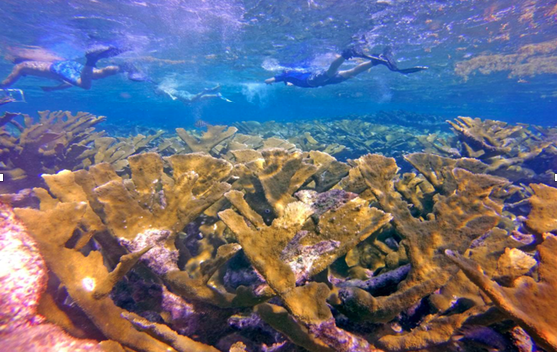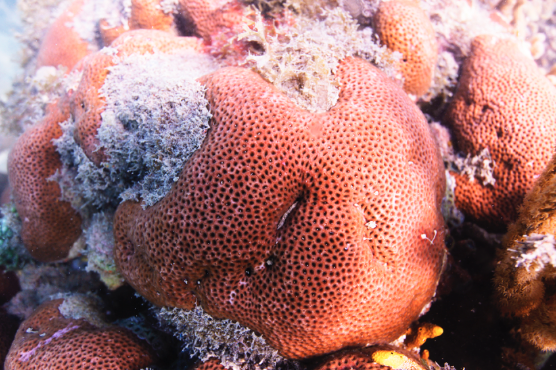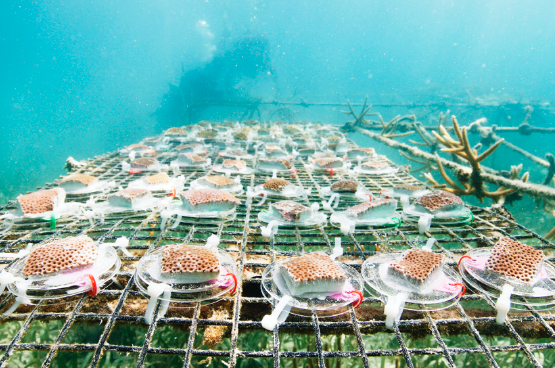By Justin Baumann
Justin Bauman, Ph.D., is a post-doctoral fellow in the Marine Sciences and Biology Departments at UNC-Chapel Hill and a member of the NC Scholars Strategy Network.
Coral Reef Research
Coral reefs are some of the most beautiful and biodiverse ecosystems on the planet. They cover 1% of the oceans but harbor near 30% of the total biodiversity.
(credit: Karl Castillo)
Did you know that about 1/3 of the global population relies on reefs for a protein source (fish and shellfish) and that most countries that have reefs get a huge economic boost from reef related tourism? This makes coral reefs even more vital!
However, corals, the creatures that build these amazing ecosystems, are sensitive to changing environmental conditions and are currently suffering and dying on large scalesas the climate changes and human population densities around reefs increase.
My research is focused on seeking out the most stubborn and resilient corals in the Caribbean and trying to determine why they are able to survive in conditions that most other corals cannot.
(A stubborn coral making the best of things, credit: ML Parker)
The way we can measure the differential impacts of environmental conditions and stressors on corals is through a transplant experiment. Essentially, we collect some corals from one place and move them to another place, then quantify how they respond to their new environment.
Through a partnership with Belize-based coral restoration NGO, Fragments of Hope, I am studying how two species of coral in the Caribbean respond to changing or new environmental conditions. Individuals that do the best are considered resilient and are valuable for use in coral restoration and for further scientific study of themechanisms behind their resilience.
(some experimental corals, credit: ML Parker)
Impacts of Climate Change on Coral Reefs
At present, we have learned that corals moved from the main offshore barrier reef in Belize to smaller nearshore patch reefs tend to grow faster than corals left on the offshore reef. We’ve also learned that nearshore corals transplanted to the main offshore barrier reef seem to struggle.
We’re still trying to understand the reasons for these trends, but this result may have big policy implications, as many nearshore reefs do not currently have protective status. It is possible that such reefs harbor the genetic and physiological tools necessary to help corals survive as the climate continues to change and oceans continue to warm!
Though our work occurs in the Caribbean, we can make clear connections between what we see in the field and climate policy here in the US (and in North Carolina). Emissions from large developed nations are the leading causes of climate change. The impacts of climate are being felt far and wide, including here in North Carolina (our recent string of brutal hurricanes is a good example).
However, the impacts of climate change are felt most by communities and countries that are poorer. Small nations like Belize and other Caribbean countries are likely to suffer disproportionally as a result of our fossil fuel use. This combined with the obvious negative impacts of less predictable weather patterns, flooding, drought, and more severe storms here in the US point out the gravity of the situation. We simply must act to reduce our emissions at the state, national, and global level. Be it through legislation such as a carbon fee and dividend bill, or international agreements (like the Paris Climate Agreement), for the sake of the world’s coral reefs and the benefit of all people, we simply cannot afford to wait.





